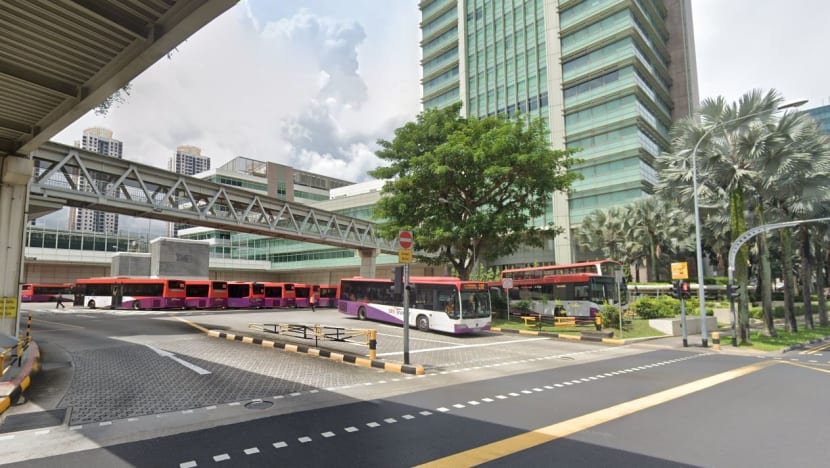'No evidence' of COVID-19 spread to commuters following detection of bus interchange clusters: Iswaran

Toa Payoh bus interchange. (Image: Google Maps Street View)
SINGAPORE: There has been “no evidence” of COVID-19 spread to commuters following the detection of COVID-19 clusters at bus interchanges, said Transport Minister S Iswaran on Friday (Sep 3).
Speaking to reporters on the sidelines of the Land Transport Industry Day, Mr Iswaran stressed that the priority was to ensure the safety of transport workers, the community and that the public transport system continues to function well.
“I want to assure Singaporeans of this that so far … because some are concerned about what does this mean for commuters, and so far the experts have said that there's no evidence of any spread to commuters, but we will continue to make sure we observe all the safeguards that have been put in place,” he said.
“And if there is a need to do more then LTA will work with the public transport operators to do more. But as of now, the priority is to ensure our transport workers are safe, our communities are safe, and our public transport system continues to function well.”
A total of 284 frontline staff members at bus interchanges have tested positive for the coronavirus from July to Sep 1, said the Land Transport Authority (LTA) in a media statement on Thursday (Sep 2).
Fifty-five per cent of the cases were detected through active testing and were asymptomatic, while the rest reported sick or tested positive during their quarantine order.
All the cases detected at bus interchanges have so far been confined to employees and some of their household members, said LTA. Almost 95 per cent of those infected are bus captains.
The latest Ministry of Health update, released on Thursday night, listed 341 cases linked to clusters at eight interchanges.
As part of enhanced measures, bus interchanges have segregated staff resting areas from dining areas, LTA announced on Thursday.
Besides segregated resting and dining areas, other measures put in place include single seating at dining areas, as well as setting up physical separators at designated smoking areas.
The frequency of cleaning of “high touch points” at staff areas will be doubled to at least once every hour, said LTA.
“What LTA has done in light of the recent set of clusters emerging is really to further tighten and enhance the safeguards and measures that we have in place in the bus interchanges,” said Mr Iswaran.
“And in doing this, LTA has to find the balance ... these facilities are there - for example the rest facilities, the dining facilities and so on, they are there for the welfare of the bus drivers, because we need them to be well-rested, so that they can continue to do their job in a safe way.”
These measures have been implemented progressively over the past few weeks. In addition, the testing of all frontline staff at bus interchanges will also be carried out at least once a week.
According to the LTA, more than 99 per cent of frontline public transport workers have taken their first dose of vaccination, with more than 95 per cent fully vaccinated.
Also, since July, public transport operators have implemented regular testing for employees who work near existing COVID-19 clusters, so that positive cases can be isolated and detected early.
Mr Iswaran added that medical experts are still studying how the bus drivers got infected.
“It’s plausible that they may have been contracted from the community, but at the same time, it is also the case that there could have been some spread at the workplace because of the fact that they come together for certain types of activities, and in some cases then when they go back to the community, that may be also a factor,” he said.
“So, our focus therefore, is to ensure that we, wherever we can, we strengthen the safeguards to minimise that risk.”
BOOKMARK THIS: Our comprehensive coverage of the COVID-19 pandemic and its developments
Download our app or subscribe to our Telegram channel for the latest updates on the coronavirus pandemic: https://cna.asia/telegram
















